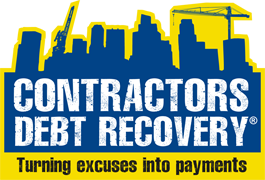Due Dates For Payment Which One Will Work Best For You?
It is unfortunately all too common for a contractor to produce a detailed quote for the work they will do for the client that contains pages of description regarding the scope of works, but no mention at all of payment terms! One of the most important things in the quote needs to be the agreed due dates for payment.
It is interesting to note that despite having numerous options, contractors will stick to either ’30 days’ or ‘7 days nett’ regardless of whether it suits them or if it is realistic. This article will encourage you to explore other terms that may better match the client and the work.
KEY POINTS FIRST
Before considering other terms you need to note some important concepts:
Terms must be agreed beforehand: You cannot stick payment terms on your invoice and then hold your client to them. Terms MUST be agreed beforehand in your contract, quote, or agreement. You will find that you cannot enforce terms in any formal process unless your client has had the opportunity to agree to them before the work. This makes it very important that you have a written agreement upfront (that’s a whole other article!).
Nail it down: You need to nail your terms down in time. For example, too often I see a term like ’30 days’. That is meaningless. Thirty days is simply a period of time: ’30 days from what’? The same goes for ‘7 days nett’; it means nothing. You need to state when that period runs from. So ’30 days from receipt of the invoice’ is a good term. Take a look at your terms and you may find they are simply periods of time rather than a payment term.
Use ‘Business Days’: If your terms are only described as ‘days’, then it is possible that the due date for payment will land on a weekend or public holiday. These are sometimes called ‘calendar days’. However if you make your payment terms in ‘business days’ then the due date will always be on a day that your client will be open and in a position to pay. Consider changing to ‘business days. For example instead of ’14 days from invoice date’ why not ’10 business days from invoice date’. It is about the same period and the due date will not be a weekend.
Invoice on time: As payment terms need to run from the date the claim was received or dated, then make sure you are invoicing at the time agreed, or regularly.
PAYMENT TERMS: YOUR OPTIONS
COD: or Cash on Delivery: Under this term you get paid before you leave the site. This is a good term if you do low value quick work. It is very important to inform your client before you attend site that payment will be required before you leave. If you want to use this term often, it is helpful to have many avenues for payment such as credit card and eftpos facilities.
7 (business) days from the date of the invoice: This is usually too short in construction unless it is home building work. In my view it is realistic only for claims up to $20 000. If you are going to use this term then it is vital to follow up after the 7 days. You need to make the term meaningful so your client knows that 7 days means 7 days.
14 (business) days from the date of the invoice: This is a pretty useful term period. Fourteen business days is in fact 3 weeks and so gives your client plenty of time to pay without being too long for your cashflow needs. If you are going only with ’14 calendar days’ then get this agreed upfront. On large commercial work you can sometimes get a deal where the client pays you fortnightly.
21 (calendar / business) days from the date of the invoice: This is a very underused term. 21 calendar days is not a full month, and business days make it about a month. This can be used for high dollar work, especially if you client is the principal / developer. In that scenario they are not waiting for a payment from their client; they are the sole client. It improves cashflow, and is not too short or too long. Take it out for a run on your next commercial project.
30 (calendar) days from the date of the invoice: This is what is commonly called ’30 days’. This is an industry standard. I think it can still be widely used but you must a) ensure that it is expressed as ’30 days from invoice date’, and b) that you enforce it. Once it is overdue, chase your money.
30 (calendar) days from the end of the month in which the invoice claim is received: This is also very common and in unavoidable on big jobs. They key here is to make sure you invoice at the end of each month. That way you are waiting 30 days or so for you money. For example if you invoice on the 3rd of the month, then payment is only due on the 30th of the next month; you are waiting nearly 60 days for your money.
